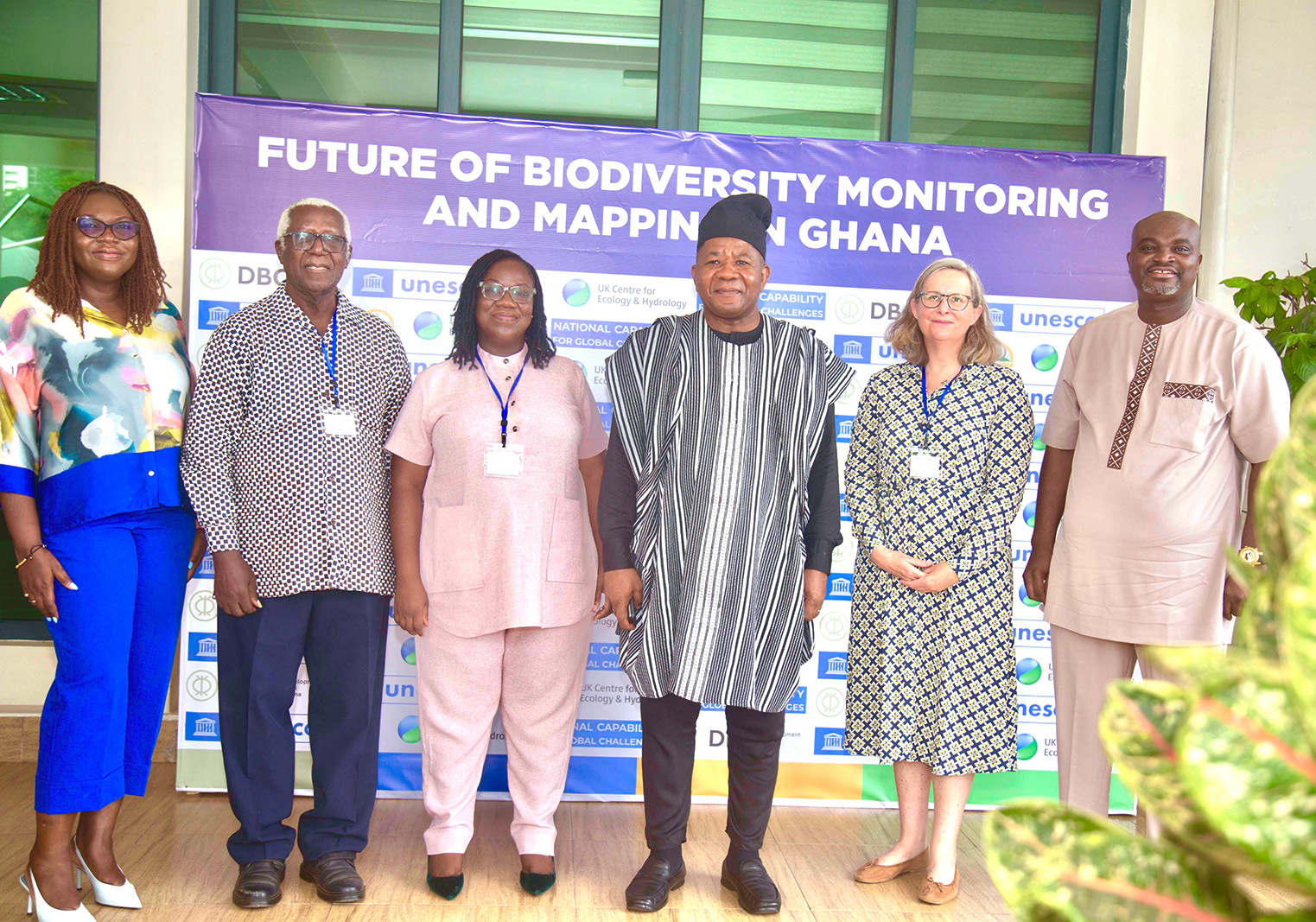UKCEH scientists joined key members of the biodiversity monitoring and mapping community of Ghana this week to explore the current status of biodiversity monitoring in the country and prioritise future opportunities. This is part of Ghana’s efforts to monitor and conserve its biodiversity resource as part of commitments to global biodiversity goals.
The international workshop was organised by UNESCO, Development Bank Ghana (DBG), Ghana Environment Protection Authority (EPA) and UKCEH's UK and West Africa offices.

Together with existing datasets, The Future of Biodiversity Monitoring and Mapping in Ghana initiative aims to identify gaps and opportunities to build a robust framework to better protect the environment and aid decision-making. Of particular interest are opportunities which could be developed into research project proposals by participating partners, especially those incorporating green financing, novel technologies, building capacity and digital infrastructure.
In a speech delivered on his behalf by Dr Peter Dery, Dr Ibrahim Murtala Muhammed, Ghana’s Minister of Environment, Science and Technology, said, “Natural resources are vital to the nation’s economy, cultural identity, and ecological resilience. Ghana is one of Africa’s biodiversity hotspots, with diverse ecosystems across forests, wetlands, savannahs, and coastal zones.”
He added that the initiative was in line with the country’s vision to integrate biodiversity into national development planning, provide evidence/science-based decision-making and build capacity for sustained biodiversity monitoring.
Mr Edmond Moukala, the Representative of the United Nations Educational, Scientific and Cultural Organisation (UNESCO) stated, “UNESCO remains committed to supporting national and international efforts to build sustainable green economies, bridge data gaps, and strengthen the link between biodiversity and climate resilience.”
The Development Bank Ghana's participation in the consortium was to encourage other financial institutions including Development Finance Institutions to invest in the environment. In a speech read on his behalf the CEO of the Bank Dr Randolph Nsor-Ambala added that as a matter of urgency investment in the environment should not be an afterthought but a priority, since every business is connected one way or the other.
UKCEH and University of Exeter ecologist Professor Helen Roy said, “The world is facing biodiversity loss caused by human activities, including invasive non-native species, climate change and pollution. The Kunming-Montreal Global Biodiversity Framework sets out ambitious goals and targets to halt and reverse nature loss. By working together collaboratively with stakeholders and exploring new tools and technologies, actions to meet the goals and protect nature will be enhanced.”
UKCEH ecologist Morag McCracken added, "The workshop has been a great opportunity, both inspiring and exciting, to bring such a fabulous team together. We look forward to building on these partnerships."
UKCEH involvement in the initiative is funded by the National Capability for Global Challenges programme.
